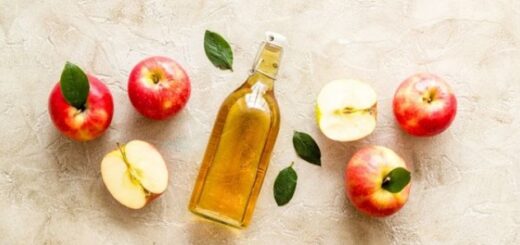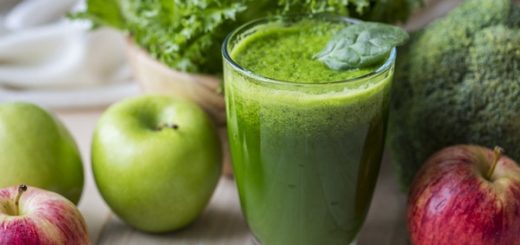8 Foods That Make Babies Gas

What are the foods that cause gas in the baby?
If you have a small baby at home and you are breastfeeding your baby, you should pay attention to your nutrition for 2 people. Since what you eat through milk is transferred to the baby, it will be affected by the foods you consume. You can be a little more selective in your meals to avoid painful and crying nights. For this reason, you should have detailed information about the foods that cause gas in the baby. During the breastfeeding period, you should definitely say “Don’t eat that, eat that! ‘ may sound like. Do not be fooled by hearsay information and take a look at the list of foods that cause gas in the puerperium we have prepared for you.
Foods That Cause Gas in Babies
- Cabbage
- Broccoli and Cauliflower
- Plenty of Spicy Foods
- Peas and Chickpeas
- Caffeinated Drinks
- Processed Foods
- Foods with Cocoa
- Dairy products
There are foods that prevent gas in the list of foods that cause gas during breastfeeding , which we have prepared with your baby and you in mind . In this period when you need to be more sensitive and well fed, the list of foods that cause gas will help you a lot. We can start to give information about foods that cause gas during breastfeeding, wishing you and your family happy days .
For the healthiest and most accurate results, please seek medical support.
8 Foods That Make Babies Gas
1) Cabbage
- Cabbage is a vegetable that produces gas both during breastfeeding and during the transition to solid food. Doctors recommend that if it is to be consumed, it should be cooked with potatoes and preferred.
- You should not forget that cabbage has substances that cause gas. You should get the necessary vitamins from different vegetables for a while.
- Since cabbage varieties contain sulfur, gas can be the inevitable end in case of consumption.
- Cabbage consumption by breastfeeding mothers can also cause gas and sleepless nights in babies.
2) Broccoli and Cauliflower
- Like cabbage, broccoli and cauliflower are sulphur-containing vegetables. It enters the large intestine and is digested.
- For this reason, you can deal with gas problem for a while when broccoli and cauliflower are consumed. If breastfeeding mothers add these vegetables to their meals, gas can also occur in babies with milk transfer.
- You may find it difficult in the morning when you want to burp the baby. Beware of!
3) Lots of Spicy Foods
- It is a known feature of hot spices to cause heartburn and gas.
- Hot spices such as chili pepper, powdered red pepper and isot, which change the balance of stomach acids, swell the stomach.
- If you are someone who likes very spicy food, you should take a break from these spices for a while during breastfeeding. The same limitation will apply to hot sauces.
- In order not to spend all night with gas and bloating, it would be useful to be a little more sensitive.
4) Peas and Chickpeas
- When you want to consume legumes after giving birth, you can feel more comfortable with little tips. You should first soak the gas-producing legumes, namely chickpeas, peas and beans in water.
- You should pre-boil these legumes waiting in water and then use them in meals.
- In addition, it is recommended to consume vegetables such as parsley, lettuce, lemon in addition to these legumes in order not to cause gas during breastfeeding.
5) Caffeinated Drinks
- Caffeinated foods will also be a food to be considered during breastfeeding.
- Frequent consumption of caffeinated beverages by the breastfeeding mother triggers the baby’s sensitivity to reflux. For this reason, experts recommend that breastfeeding mothers avoid beverages such as coffee, cola and tea and consume fresh juice.
- In addition, the healthiest beverages are water during this period. In order not to decrease the amount of milk, 1 glass of water should be consumed after each breastfeeding and plenty of water should be consumed during the day.
6) Processed Foods
- It is a fact that processed foods are unhealthy. Especially after giving birth, it is even more unhealthy to consume.
- It is recommended that mothers stay away from all processed and packaged foods. Foods containing preservatives and sweeteners cause gas in breast milk and cause the baby to deal with gas pains during the night.
- Sausage, salami, ready-to-eat foods, snack foods are on the banned list during breastfeeding. If you stay away from these foods, your baby will prevent gas formation and sleep more comfortably.
7) Foods with Cocoa
- When your baby is born, there is a sweet rush in your home. There can be various kinds of food in one meal, while guests say treat plates sent by neighbors.
- When you see foods with cocoa in this rush, you should stay away. It will be very dangerous to solve the sweet crisis with chocolate.
- Because cocoa foods are known to cause gas in breastfeeding mothers. Caffeine, which is passed to the baby through breast milk, creates gas stress.
- During this period, when you want to eat dessert, you should prefer to consume fruit. Chocolates, which you think increase the amount of milk, may be an unhealthy choice during this period.
8) Dairy Products
- Sometimes, when mothers consume dairy products, they observe that their baby also experiences gas pains. One of the factors that cause this situation is that the protein in milk is heavy for babies.
- If the breastfeeding mother consumes milk, cheese, yoghurt and realizes that the baby is gassy, it is recommended that mothers consume dairy products in moderation.
- While choosing dairy products, lactose-free options will be good for both the mother and the baby. Lactose-free dairy products, which are easier to digest, will help the baby stay away from gas pains and sleep more happily.
- The mother also feels better when consuming these products. Thus, cheese varieties and yogurt varieties can be added to the list of foods that cause gas for babies. This situation is generally observed in foods prepared with cow’s milk.
- Since the protein ratio of plant milk is lower, the mother can easily drink almond, hazelnut and coconut milk.











